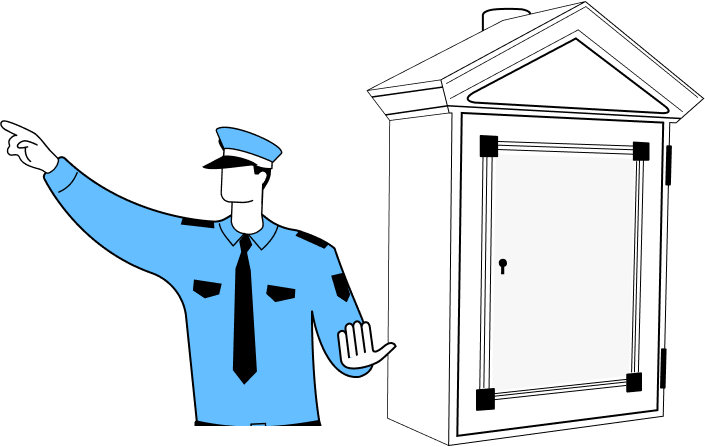Assets, Liabilities, and Cash Flow
Assets, liabilities, and cash flow…what are these things and why are they important to you? Simply put, these are the aspects of your personal finances that you must understand if you are going to be able to develop a realistic budget and set achievable financial goals.
Identifying these elements of your personal finances will help you to determine your individual net worth as well as the amount of money you have coming in and going out, which in turn will help you to establish an effective budget for yourself and your family.
Let’s start by identifying and assigning a value to your assets. Assets are defined simply as anything that you own that has an exchange value. Common personal assets include your home, your car, savings account balances, savings bonds, deferred compensation (457b, 401k) plan balances, IRA’s, insurance, annuities, other investments, and personal items such as jewelry and household belongings.
Your most recent statements will clearly indicate the balance that you have accumulated in your savings, deferred compensation, and investment accounts and you should use these figures to assign a monetary value to these assets.
If you recently purchased a home, the purchase price is the value that you should use. In most cases, you can figure the appreciation in the value of your home by estimating that it has increased in value by an average of 3% to 8% per year over the purchase price for the number of years that you have lived in the home. If you want to figure the value of your home more precisely or you have reason to believe that your home has experienced above average appreciation, contact a local realtor and ask him or her to run a comparative market analysis for you. This analysis will indicate what similar homes in your area have sold for in recent months. This information is easy for realtors to obtain and they will typically provide the report to you at no cost. If you happen to own additional property (2nd home, rental property, vacant lot), the same evaluation process applies.
Use the blue book or an equivalent guide in order to determine the value of your car. Each guide will reference a few evaluations and ranges for each car. For the purpose of this exercise, use the average trade-in value and be sure to properly account for the mileage and any options on the vehicle.
Assigning a value to certain insurance policies and annuities can be tricky because they are typically designed to be of value at some point in the future when a particular event occurs or a specified age is reached. Some have what is referred to as a Cash Surrender Value, which is the amount of money the policy is worth today should you decide to cash it in prior to the designated maturity date. If you have a policy with a Cash Surrender Value, use that number to determine the value of the policy in present day terms. If a Cash Surrender value does not apply to the policy you carry, then you should not include the policy in your current asset valuation.
With regard to your personal belongings, it is generally acceptable to use a number between 25% and 50% of the original purchase price or value of the items. These items are subject to depreciation in value not only because you and your family are using them, but also because they will only have an exchange value during a private sale or auction. Potential buyers are only attracted to these types of sales when sale items are being offered at a significant discount.
If, however, you happen to own something that is subject to an appreciating value, such as certain artwork, unique jewelry, or a vintage car, the most recent appraised value is applicable.
Once you have gathered all of the information relating to your assets and completed the list of values, add them up and the result is the total current value of your assets.
Liabilities refer to your debts or obligations. Common liabilities include mortgages, home equity loans (sometimes referred to as 2nd mortgages), car loans, credit card balances, other personal loans, and tuition or student related loans.
Most loan statements will clearly indicate the current balance owed, but the loan type dictates the actual amount of your current liability.
Many term loan statements, such as the ones that you receive for your mortgage, car loans, student loans, etc. include a payoff figure, which is the amount you would need to pay if you decided you wanted to pay the loan off in full during the current pay period. The payoff figure is what you should use to assign a value to these liabilities because it is the current amount owed that determines the amount of your current liability. In many cases, the payoff figure will be significantly less than the amount you would owe if you simply paid the loan off in accordance with the original term of the loan.
The total amount due and owing on your credit card statement, however, equals the exact amount of your current liability.
Another key factor to consider is that your liability begins at the point of purchase. Many consumers take advantage of promotions that involve deferred and/or interest free payments on their larger purchases. If you have made a purchase under these terms, you must include the amount you will owe on the payment due date in your current liabilities. For the purpose of determining cash flow, however, you can exclude the amount owed from your cash outflow until the due date.
Some loans have either an early pay discount or penalty attached to them. While it is necessary for you to be aware of these terms if they exist, they do not impact your current liability evaluation.
Once you have gathered all of the information on what you owe and completed the list of the related amounts, add them up and the result is the total current value of your liabilities.
You are now in a position to determine your financial net worth. Subtract your liability total from your asset total and the result is your net worth. The criteria we have used to determine your asset and liability values ensure that your resulting net worth calculation is tangible and realistic.
Whether your net worth is negative or simply smaller than you would like it to be, you have reached a point where you have identified specific contributors to your net worth and areas in need of focus and improvement. You are now in a position to set some achievable and applicable goals for yourself in order to increase your net worth. A realistic, personalized budget will provide you with a map for achieving your financial goals.
There are two aspects of a budget, income (cash in) and cost (cash out). Many people make the mistake of concentrating solely on the cost side of a budget. In so doing, they emphasize costs for the general purpose of fitting their costs into their income. The reality of cash flow is that it must flow in before it flows out. It is, therefore, essential to first concentrate your efforts on understanding and maximizing your income.
While the art of maximizing your income is a detailed topic of its own, you can cover the basics just by being informed and making good, common sense decisions about what to do with your money. Understanding your income involves developing an awareness of your income sources. For most of the working world, there is only one source for any meaningful income that you earn and that is your job(s). You can maximize the cash flow created by your employment income by developing a better understanding of the tax system, overtime laws, and issues that are unique to your line of work such as peak busy times or the seasonality of the product or service that your provide. When you understand all of these factors, you will maximize your paycheck.
Once you have taken the steps necessary to ensure that you have as much cash inflow as possible, it is time to identify all of the cash outflows, and there are several. Cash outflows or costs consist of mortgage payments, car payments, credit card payments, other loan payments, insurance costs, property taxes, utility bills, groceries and household supplies, clothing costs, and any miscellaneous spending money you need. Look at a specific period of time, preferably a typical month, and itemize the cost associated with each of the above.
Compare your monthly net income, the amount that you actually take home during the course of the month, to your monthly expenses. These numbers set the parameters and key components of what will become your household budget.
Ideally, the total of your monthly loan payments should not exceed 28% of your net income and your savings target should be around 10% of each paycheck. These amounts vary from household to household depending on factors ranging from the number of dependents in the household to any alternative savings plans you have such as the amount you contribute to a 401k or 457b plan on a pretax basis.
If you think that you can realistically hit these targets, it may seem like the remaining 62% of your net income is yours to do what you want with, but don’t forget about the other expenses not already included in your loan payment calculation. Insurance costs, utility bills, and groceries add up and are probably more costly than you think especially if you have never itemized them before.
There is one last question to answer. What about the dreaded unforeseen circumstances life throws your way? Take at least some of the stress created by these situations and have a contingency plan. Put some money on the side for the blown furnace, the new transmission, and the flooded basement and bet that all of these things are lurking around the next corner. Once you have done that, stop worrying because you’ve accounted for everything and, for once, your finances are under control! The only thing left for you to do is remain disciplined and stick to your budget.
And, don’t forget, members of the Credit Union enjoy free and confidential Credit Counseling and Financial Planning through our Financial Planning and Education Center. We are here to assist you every step of the way.
Scott Arney
Chief Executive Officer
Chicago Patrolmen’s Federal Credit Union








